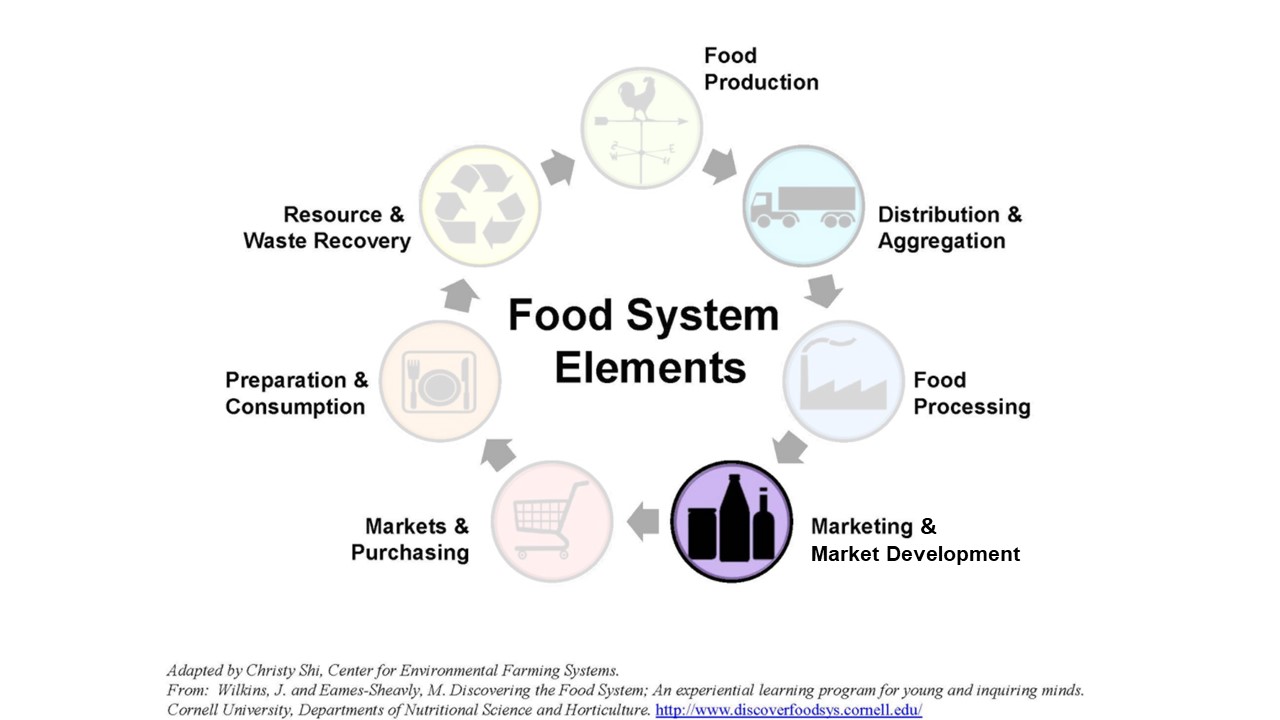Marketing & Market Development
go.ncsu.edu/readext?224470
en Español / em Português
El inglés es el idioma de control de esta página. En la medida en que haya algún conflicto entre la traducción al inglés y la traducción, el inglés prevalece.
Al hacer clic en el enlace de traducción se activa un servicio de traducción gratuito para convertir la página al español. Al igual que con cualquier traducción por Internet, la conversión no es sensible al contexto y puede que no traduzca el texto en su significado original. NC State Extension no garantiza la exactitud del texto traducido. Por favor, tenga en cuenta que algunas aplicaciones y/o servicios pueden no funcionar como se espera cuando se traducen.
Português
Inglês é o idioma de controle desta página. Na medida que haja algum conflito entre o texto original em Inglês e a tradução, o Inglês prevalece.
Ao clicar no link de tradução, um serviço gratuito de tradução será ativado para converter a página para o Português. Como em qualquer tradução pela internet, a conversão não é sensivel ao contexto e pode não ocorrer a tradução para o significado orginal. O serviço de Extensão da Carolina do Norte (NC State Extension) não garante a exatidão do texto traduzido. Por favor, observe que algumas funções ou serviços podem não funcionar como esperado após a tradução.
English
English is the controlling language of this page. To the extent there is any conflict between the English text and the translation, English controls.
Clicking on the translation link activates a free translation service to convert the page to Spanish. As with any Internet translation, the conversion is not context-sensitive and may not translate the text to its original meaning. NC State Extension does not guarantee the accuracy of the translated text. Please note that some applications and/or services may not function as expected when translated.
Collapse ▲Marketing local food is the strategy a producer uses to connect their products with consumers. Local food can be sold directly to consumers or through intermediary markets such as institutions. Direct-to-consumer sales often require understanding customer demand as well as product labeling and farm certifications. Intermediary channels often require market development and strategies for connecting with both the buyers and the distributors who service those buyers. This page provides links to resources for different market types and helpful strategies to consider for engaging consumers, links to resources that help farmers with required certifications, and links to programs that support the development of intermediary markets.

On This Page
| Local Food Market Development | Intermediary Markets |
| Direct-to-Consumer Markets | Certifications & Branding |
Local Food Market Development
- NC 10% Campaign Resources for Local Food Coordinators: The NC 10% Campaign supports all types of market development.
Direct-to-Consumer Markets
Producer to Consumer
- Online Sales: This page provides resources and information for producers getting started with online sale methods. New resources will be added as they become available.
- Agritourism & Farm Visits: Agritourism is a form of consumer engagement where farms “offer a variety of recreational, educational, and tourism activities to make their finances more resilient” (Extension Tourism). These activities can include farm tours.
- Learn about our Extension Agritourism Curriculum for Agritourism Operators.
- Community-Supported Agriculture: The Community-Supported Agriculture (CSA) model is a marketing model whereby local farmers offer unique farm products to buyers who will subscribe to receive a weekly or monthly box of fruits, vegetables, fresh flowers, eggs, meats, cheeses, or any assortment of local farm products.
- Farmers’ Markets: Includes information and resources that may be of interest to farmers’ market managers, farmers’ market vendors, and engaged residents developing their local and community-based food systems, as well as links to the following sub-pages:
- Farmers’ Markets & Food Access: Learn about access discrepancies at farmers’ markets and resources to lessen those discrepancies (including SNAP EBT, WIC, FMNP, and more).
- Farmers’ Market Tour Resources: Farmers’ Market Tours can be a great way to introduce new customers to a great source of fresh, local food! Whether they’re part of a class or on their own, there are a lot of resources available to help you guide new consumers through a market and think about how to budget and prepare fresh food.
- Food Safety for Farmers’ Markets: The NC Fresh Produce Safety page has an extensive library of food safety resources for farmers’ markets. It includes safety guidelines for farmers and sellers and NCDA&CS guidelines on food products sold at farmers markets and curb markets.
Intermediary Markets
Producer to Intermediary to Consumer
- Farm to Institution: Access resources and information related to farm to school, farm to preschool/early child care, farm to university, farm to hospital, and related programs.
- Farm to School & Farm to Cafeteria: Farm to School is a movement that strives to build a youth’s connection to healthy, local food through school gardening, farm field trips, hands-on cooking and nutrition and local sourcing of fresh fruits and vegetables to school cafeterias.
- Retail Markets: This page contains information of interest to farmers selling into retail markets, retailers and other buyers sourcing locally produced food, and service-providers providing technical assistance to both producers and buyers.
- Local Food and Cooperatives: An extensive introduction to co-op models, including an introduction to the member-ownership structure and steps to forming a cooperative. Cooperatives and food hubs often provide support for farmers through market development as well as through aggregation services.
Certifications & Branding
- State & Regional Branding Programs: Learn about the Got to Be NC, Piedmont Grown, and Appalachian Grown certifications; all great resources for NC producers interested in adding a sense of local authenticity into their marketing efforts.
- Information on GAP Certification: Learn about the Good Agricultural Practices certification program, a valuable opportunity for farms to demonstrate their dedication to food safety to consumers.


